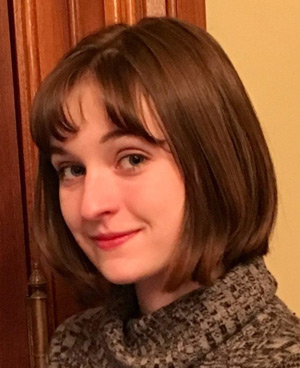 I always found the first lines of The Waste Land to be counterintuitive. April has always been my favorite month. I’m not a fan of the cold, so the arrival of the warm sun is always a welcome change. I listen to my favorite bands, celebrate my birthday, and drag my friends by their hands to go dance in the rain. T.S. Eliot’s opening sentiments made less sense to me than the rest of the fragmented poem:
I always found the first lines of The Waste Land to be counterintuitive. April has always been my favorite month. I’m not a fan of the cold, so the arrival of the warm sun is always a welcome change. I listen to my favorite bands, celebrate my birthday, and drag my friends by their hands to go dance in the rain. T.S. Eliot’s opening sentiments made less sense to me than the rest of the fragmented poem:
But I understand it now. I have never felt a colder April before. This April, I live in my room, as if trapped in a metal cage. I don’t get tired until 2AM, and even then, sometimes I’m up later. I wake for my live classes, otherwise I could probably sleep well into the afternoon, warm in my bed and forgetting the panic that seeps into every day. Sometimes I pick up my ukulele, but I can only play for a short time without getting a headache.
The headache… is that a symptom of COVID-19? Is the oatmeal I ate just bland, or am I losing my senses of smell and taste? I’m allergic to pollen and pets, but live in an old drafty house with four cats and a dog… that’s probably the reason I feel tightness in my chest, right?
This paranoia is fleeting. Some days I worry all day; others I just tell myself that everything is okay. Or at least, everything will be okay. If I try hard enough, I can force a feeling of numbness- a great accomplishment considering we are living in a pandemic. Sometimes, I distract myself by reminiscing. A few days ago, my friend from college told me, “What I wouldn’t give to be sitting in the Honors House, eating omelets and talking about The Omnivore’s Dilemma.” It’s comforting but painful to think about where we could have been this April. Before the pandemic, I imagined springtime picnics and long adventures in the woods, and seeing how many people could fit under my bed (the record is six- but now I can’t imagine being that close to anyone), silly pranks, movie nights, and group breakfasts. Right now, we would certainly be studying together for finals, and tearing up at the thought of being apart until fall.
But where will be in the future? What does next April have in store for us? Will we be able to laugh, remembering the days of phone-call sleepovers, desperate haircuts, and mastering the art of wordless communication in a group Facetime? Or will we be wearing masks to class and having limits on group gatherings while our plans of traveling the world fade into dreams? I wonder about people coped with the Spanish Influenza, living within the damaged cities of war-torn Europe. How were they able to keep moving forwards, when I struggle to imagine a world where we can’t return to campus in the fall?
One of the biggest projects I worked on this semester was in Introduction to Digital History, where I studied the British Bill of Mortality in the early eighteenth century: a record of every death in London, listed not by names of people but by cause of death. While I decided to study the document before quarantine started, the morbidity of the numbers weighed upon me. It blows my mind that thousands of people, with lives just as intricate and full of worries as ours, were reduced to a simple tally. Will this happen to us too? Perhaps this pandemic will be remembered as a blip, reduced to a couple pages in a textbook. It’s hard to come to terms with all snapshots and status updates, all these lives and hardships, being ground into history.
But we still remember the Lost Generation, and the Greatest. We remember the Great Depression and the Black Death. We remember the strength of human perseverance. After all, Eliot writes, having suffered from Spanish flu himself, “we think of the key/ each in his prison.” This key must exist, and it will be found through herd immunity or vaccines or the virus-killing sun. At least we can remain comforted, knowing that we are not the first to fear our world is lost. If human beings overcame the waste land of World War I, then we can overcome COVID-19.


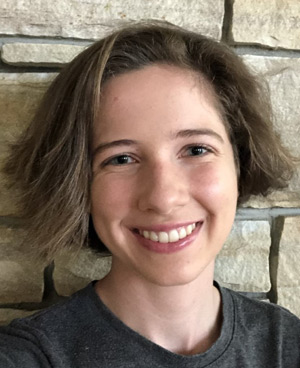 Every day I scroll through the Center for Disease Control’s COVID-19 test data on the Connecticut government’s website. I skim the daily increase in cases and deaths, checking specifically the towns where my friends and I live, and oversee the decline of hospitalization. But it’s clinical, idle research, my mindset akin more to a person playing a trivial game on their phone than someone staying informed on a global pandemic. I scroll through:
Every day I scroll through the Center for Disease Control’s COVID-19 test data on the Connecticut government’s website. I skim the daily increase in cases and deaths, checking specifically the towns where my friends and I live, and oversee the decline of hospitalization. But it’s clinical, idle research, my mindset akin more to a person playing a trivial game on their phone than someone staying informed on a global pandemic. I scroll through: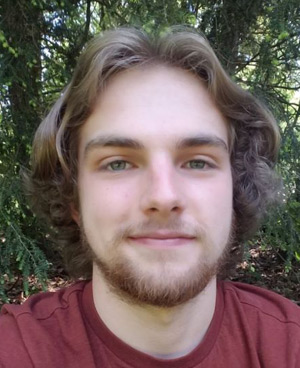 I recently underwent a difficult challenge in many modern people’s lives: college. It was particularly hard for me because although I have a sister, we were born nine years apart and have been described as “two only children” by our parents. This solitary upbringing meant that being around so many new people all the time was hard for me, and I prayed endlessly for the semester to end for me to go home. Then, halfway into the second semester, God answered my prayers.
I recently underwent a difficult challenge in many modern people’s lives: college. It was particularly hard for me because although I have a sister, we were born nine years apart and have been described as “two only children” by our parents. This solitary upbringing meant that being around so many new people all the time was hard for me, and I prayed endlessly for the semester to end for me to go home. Then, halfway into the second semester, God answered my prayers.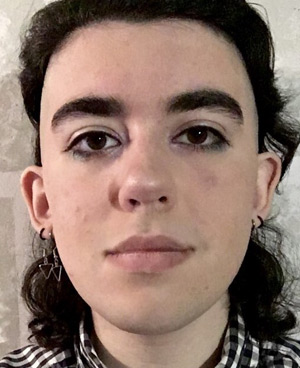
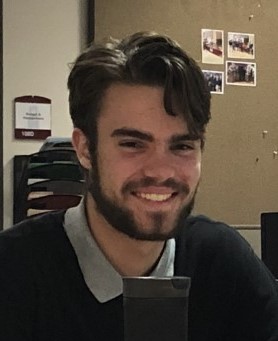 I’ve paced my room for twenty minutes before I sat down to write. The anxiety that fills my head is not new, but it’s different. My house is eerily quiet; I’m alone while my parents and brother go to work with a newfound uncertainty: the uncertainty of whether or not they will succumb to the coronavirus. I don’t hear the airplanes overhead anymore and there’s hardly a car on the street. However, on my social media pages I see people disregarding social distancing and enjoying intimate moments with their friends. I don’t wish ill harm upon anyone, but the fact that these risk-takers may never suffer repercussions really infuriates me. My mother, a bus driver at a senior living home has been made into an impromptu nurse. She takes people’s temperatures, delivers mail to their rooms, and does other tasks not in her job description. She’s also an ex-smoker in her mid 50s with high blood pressure. There’s been 7 deaths at the home and around a dozen cases. If my mother gets the coronavirus, she has a good chance of dying. All the while, my grandmother of 94 years on my dad’s side is currently in the concluding days of her life. Because of the virus, I won’t get the chance to say my traditional goodbyes. I want to hug and physically comfort and be comforted by my family, but out of caution we can’t do that. Glasses shed and tears streaming down my face, I ask the empty room, “Why do bad things happen to good people?”
I’ve paced my room for twenty minutes before I sat down to write. The anxiety that fills my head is not new, but it’s different. My house is eerily quiet; I’m alone while my parents and brother go to work with a newfound uncertainty: the uncertainty of whether or not they will succumb to the coronavirus. I don’t hear the airplanes overhead anymore and there’s hardly a car on the street. However, on my social media pages I see people disregarding social distancing and enjoying intimate moments with their friends. I don’t wish ill harm upon anyone, but the fact that these risk-takers may never suffer repercussions really infuriates me. My mother, a bus driver at a senior living home has been made into an impromptu nurse. She takes people’s temperatures, delivers mail to their rooms, and does other tasks not in her job description. She’s also an ex-smoker in her mid 50s with high blood pressure. There’s been 7 deaths at the home and around a dozen cases. If my mother gets the coronavirus, she has a good chance of dying. All the while, my grandmother of 94 years on my dad’s side is currently in the concluding days of her life. Because of the virus, I won’t get the chance to say my traditional goodbyes. I want to hug and physically comfort and be comforted by my family, but out of caution we can’t do that. Glasses shed and tears streaming down my face, I ask the empty room, “Why do bad things happen to good people?”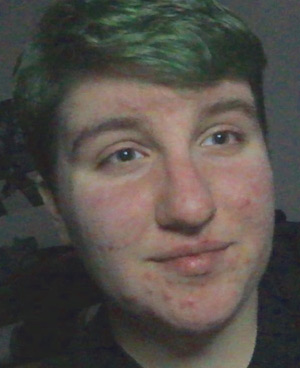 On February 24th, 2020, my grandmother passed away. She was one of the most influential people in my life and I was shattered when I got the news. Though she had been declining in health for three years before her death, I never really considered what my life would be like without her. I came home from college the next day to join my family in mourning. We sat down with the rabbi of my grandparents’ synagogue and told him everything he needed to know about the life of my grandmother, how she dropped out of college to raise her family, how she was the world’s greatest hostess, and how she loved her grandchildren more than life itself. The next day we lowered her into the ground, surrounded by her family and her closest friends. Later, sitting shiva in my packed house, we shared food and stories, and watched the memorial candle burn down. At the end of the night, looking around at all the people who loved and cared for her, I smiled; I realized she died knowing how loved she was.
On February 24th, 2020, my grandmother passed away. She was one of the most influential people in my life and I was shattered when I got the news. Though she had been declining in health for three years before her death, I never really considered what my life would be like without her. I came home from college the next day to join my family in mourning. We sat down with the rabbi of my grandparents’ synagogue and told him everything he needed to know about the life of my grandmother, how she dropped out of college to raise her family, how she was the world’s greatest hostess, and how she loved her grandchildren more than life itself. The next day we lowered her into the ground, surrounded by her family and her closest friends. Later, sitting shiva in my packed house, we shared food and stories, and watched the memorial candle burn down. At the end of the night, looking around at all the people who loved and cared for her, I smiled; I realized she died knowing how loved she was.